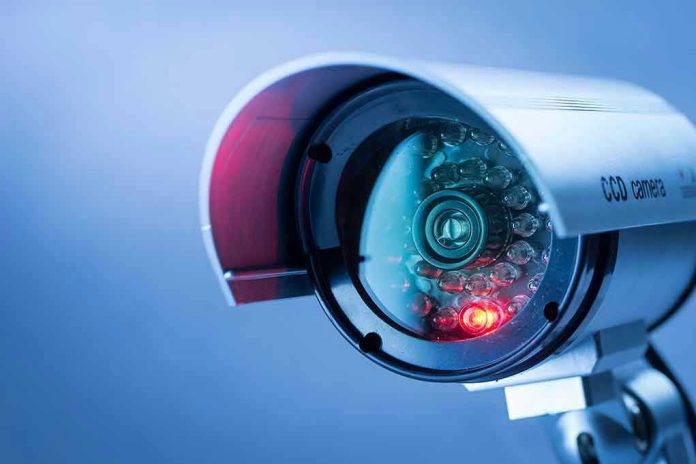
AI-powered surveillance tools are quietly invading the privacy of American families, with schools now monitoring students 24/7—even inside their own homes.
Story Highlights
- School safety vendors now track students’ digital activity around the clock, including off-campus and on personal devices.
- Artificial intelligence assigns risk scores to children, raising major privacy and fairness concerns.
- Many parents and students are unaware of the extent of this surveillance, fueling calls for transparency and oversight.
- Experts warn this trend undermines family privacy and conservative values, eroding trust and blurring the line between school and home.
Surveillance in the Name of Safety: Scope and Evolution
In August 2025, a groundbreaking UC San Diego study revealed that 86% of school safety technology vendors now monitor students continuously—including on their personal devices at home. Originally intended to prevent bullying, self-harm, and violence, these tools have rapidly morphed into comprehensive surveillance systems under the pressures of the pandemic and remote learning. Parents who value their children’s privacy and family autonomy are justifiably alarmed as these systems extend far beyond school walls, with schools and vendors often failing to provide adequate transparency or consent mechanisms.
The technology’s reach is staggering: 71% of vendors deploy artificial intelligence to flag behavior and assign “risk scores,” while 36% require monitoring apps on student-owned devices. These developments mean that what children do online—even in the supposed safety of their own bedrooms—can be tracked, analyzed, and reported. Such measures were implemented quickly by school districts eager to avoid liability and public criticism, but often at the expense of parental oversight and student rights. The shift from in-school monitoring to home surveillance raises alarms about how far government and corporate power can intrude into private American life.
Threats to Privacy, Family Authority, and Constitutional Principles
For conservative Americans, the consequences reach beyond mere discomfort. The normalization of 24/7 surveillance undermines parental authority and sets a dangerous precedent for government overreach. These tools risk criminalizing or misinterpreting innocuous behavior, with students disciplined for misunderstood or out-of-context online activity. Legal and privacy experts warn that current laws lag behind technology, leaving families with little recourse or clarity about how personal data is collected, stored, or used. This erosion of privacy and due process stands in direct opposition to foundational American values—limited government, personal liberty, and the sanctity of the family home.
Many of the companies profiting from this surveillance are private edtech vendors, often enjoying outsized influence over school procurement decisions. Civil liberties organizations and privacy advocates have raised red flags about the lack of independent audits, transparent policies, or informed parental consent. The psychological impact on students—knowing they are constantly watched—includes heightened anxiety and a breakdown of trust within families and communities. As surveillance becomes routine in childhood, it threatens to normalize a culture of compliance and suspicion, extending far past the school years.
Debate, Pushback, and the Demand for Reform
The backlash to these revelations is growing. Parents, educators, and policymakers are increasingly demanding clear guidelines, opt-out options, and independent oversight of student surveillance practices. Some school districts are now reviewing contracts and policies in response to mounting public concern, while privacy advocates call for urgent legislative action to protect student and family rights. However, the powerful edtech industry and safety-first rhetoric continue to impede reform efforts, leaving many families in the dark about the extent of monitoring in their lives.
Schools’ safety tools are spying on kids — even at home https://t.co/hiYweKdC9y
— ConservativeLibrarian (@ConserLibrarian) August 25, 2025
At stake is not just student privacy but the broader principle of where the line should be drawn in a free society. The current approach prioritizes institutional convenience and risk aversion over fundamental rights, setting a precedent that could allow further encroachments on constitutional freedoms. The debate is now at the forefront of national attention, with calls for transparency, accountability, and a return to policies that respect individual liberty, family sovereignty, and the foundational values that make America unique.
Sources:
UC San Diego study highlights invasive student surveillance by school safety vendors
Fox News: Schools’ safety tools are spying on kids — even at home




